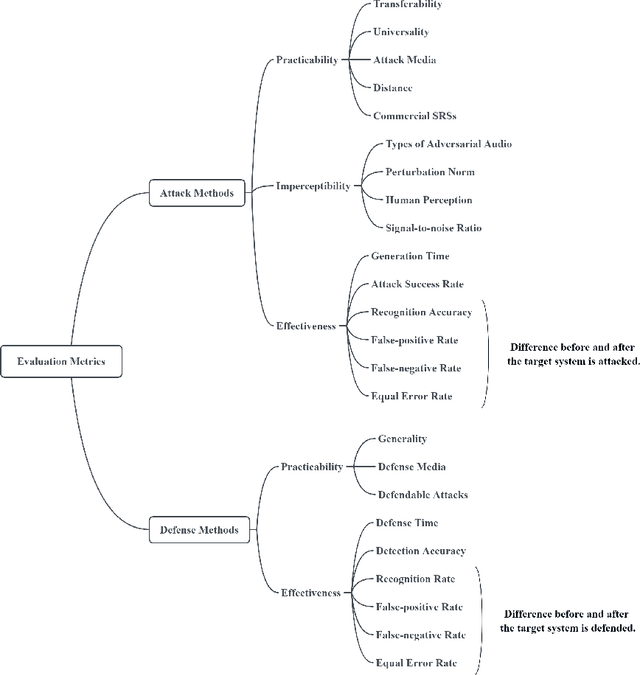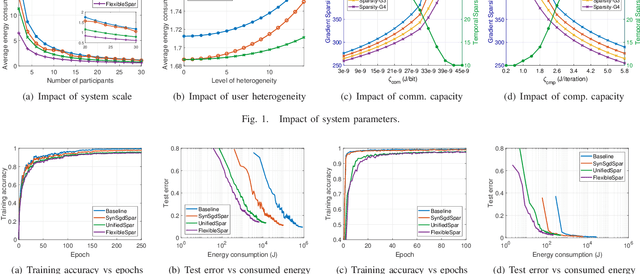Ronghui Hou
Adversarial attacks and defenses in Speaker Recognition Systems: A survey
May 27, 2022


Abstract:Speaker recognition has become very popular in many application scenarios, such as smart homes and smart assistants, due to ease of use for remote control and economic-friendly features. The rapid development of SRSs is inseparable from the advancement of machine learning, especially neural networks. However, previous work has shown that machine learning models are vulnerable to adversarial attacks in the image domain, which inspired researchers to explore adversarial attacks and defenses in Speaker Recognition Systems (SRS). Unfortunately, existing literature lacks a thorough review of this topic. In this paper, we fill this gap by performing a comprehensive survey on adversarial attacks and defenses in SRSs. We first introduce the basics of SRSs and concepts related to adversarial attacks. Then, we propose two sets of criteria to evaluate the performance of attack methods and defense methods in SRSs, respectively. After that, we provide taxonomies of existing attack methods and defense methods, and further review them by employing our proposed criteria. Finally, based on our review, we find some open issues and further specify a number of future directions to motivate the research of SRSs security.
To Talk or to Work: Flexible Communication Compression for Energy Efficient Federated Learning over Heterogeneous Mobile Edge Devices
Dec 22, 2020
Abstract:Recent advances in machine learning, wireless communication, and mobile hardware technologies promisingly enable federated learning (FL) over massive mobile edge devices, which opens new horizons for numerous intelligent mobile applications. Despite the potential benefits, FL imposes huge communication and computation burdens on participating devices due to periodical global synchronization and continuous local training, raising great challenges to battery constrained mobile devices. In this work, we target at improving the energy efficiency of FL over mobile edge networks to accommodate heterogeneous participating devices without sacrificing the learning performance. To this end, we develop a convergence-guaranteed FL algorithm enabling flexible communication compression. Guided by the derived convergence bound, we design a compression control scheme to balance the energy consumption of local computing (i.e., "working") and wireless communication (i.e., "talking") from the long-term learning perspective. In particular, the compression parameters are elaborately chosen for FL participants adapting to their computing and communication environments. Extensive simulations are conducted using various datasets to validate our theoretical analysis, and the results also demonstrate the efficacy of the proposed scheme in energy saving.
 Add to Chrome
Add to Chrome Add to Firefox
Add to Firefox Add to Edge
Add to Edge